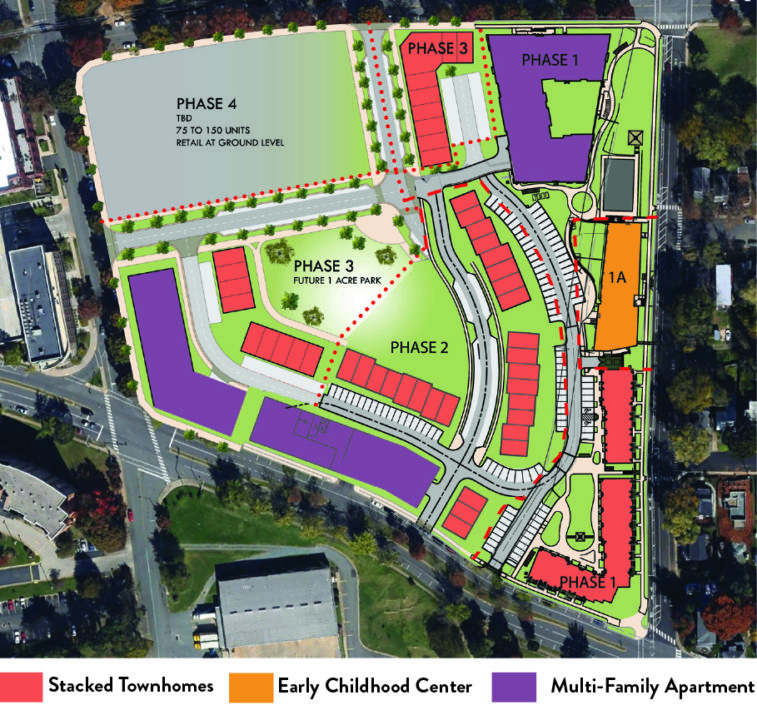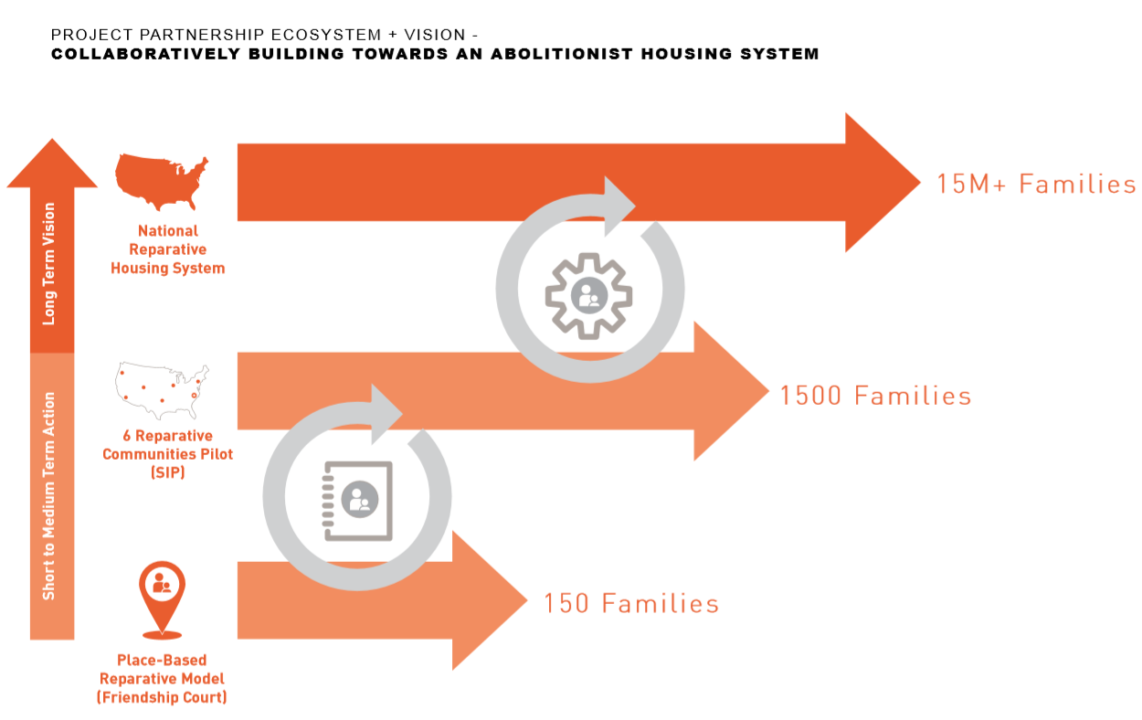Reparative Community Development
We aim to reshape the links between race, geography, and life outcomes nationwide by piloting replicable, resident-led, reparative community development models in Charlottesville and beyond.
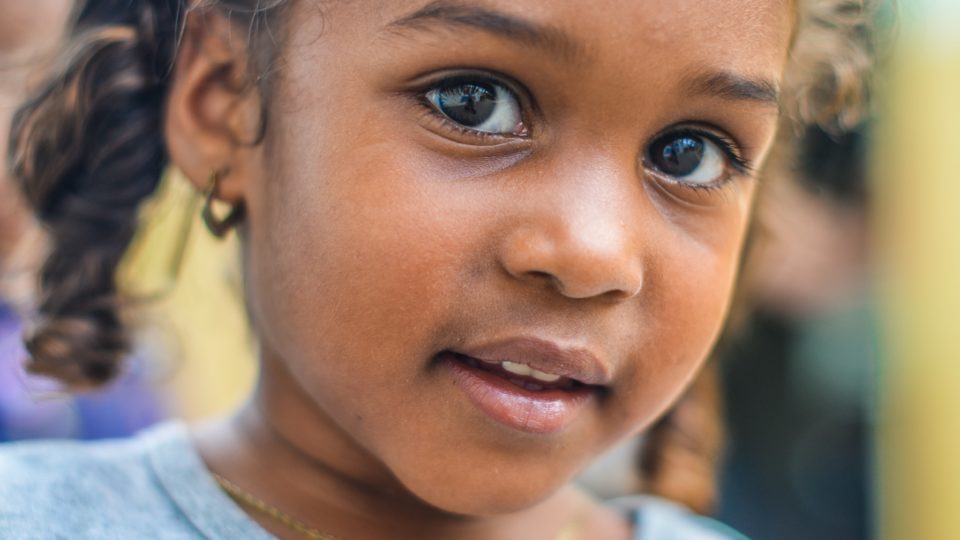
Your home. Your neighborhood. These should be places that support your capacity to thrive, not intensify the struggle to survive. Yet, across the country, our housing system perpetuates persistent barriers, particularly for households of color. Guided by the urgency of increasing vulnerability in low-wealth communities, our team will seed a reparative housing development model, grounded in resident expertise, to be disseminated nationwide through existing channels of thought leadership and resource allocation.
This pathbreaking partnership of place-based residents, leading with the wisdom of lived experience, an innovative regional nonprofit, and a network of national intermediaries aims to transform the racialized geography of our flawed housing system, reshaping the link between race and life outcomes.
The Friendship Court Community
This funding will accelerate the remarkable four-phased, zero-displacement vision for Friendship Court that has been germinating since 2017.
While this work is rooted in the resident-designed transformation of the physical environment (mostly funded through traditional housing financing), rebuilding housing alone is insufficient to make real and lasting change. We have been charting a broader vision to build an ecosystem of process and practice to counter existing systems of exclusion and disenfranchisement. Although the foundation for this vision has advanced significantly, it requires the resources to nurture, iterate and blossom into the next decade.
Learn more about the Friendship Court redevelopment and meet the advisory committee.
Spatial Justice Pillars
While the work at Friendship Court is rooted in the resident-designed transformation of the physical environment, rebuilding housing alone is insufficient to make real and lasting change. We’ve been charting a broader vision to build an ecosystem of process and practice to counter existing systems of exclusion and disenfranchisement. This vision is rooted in four foundational “Spatial Justice Pillars” that will guide all prioritization and decision-making.
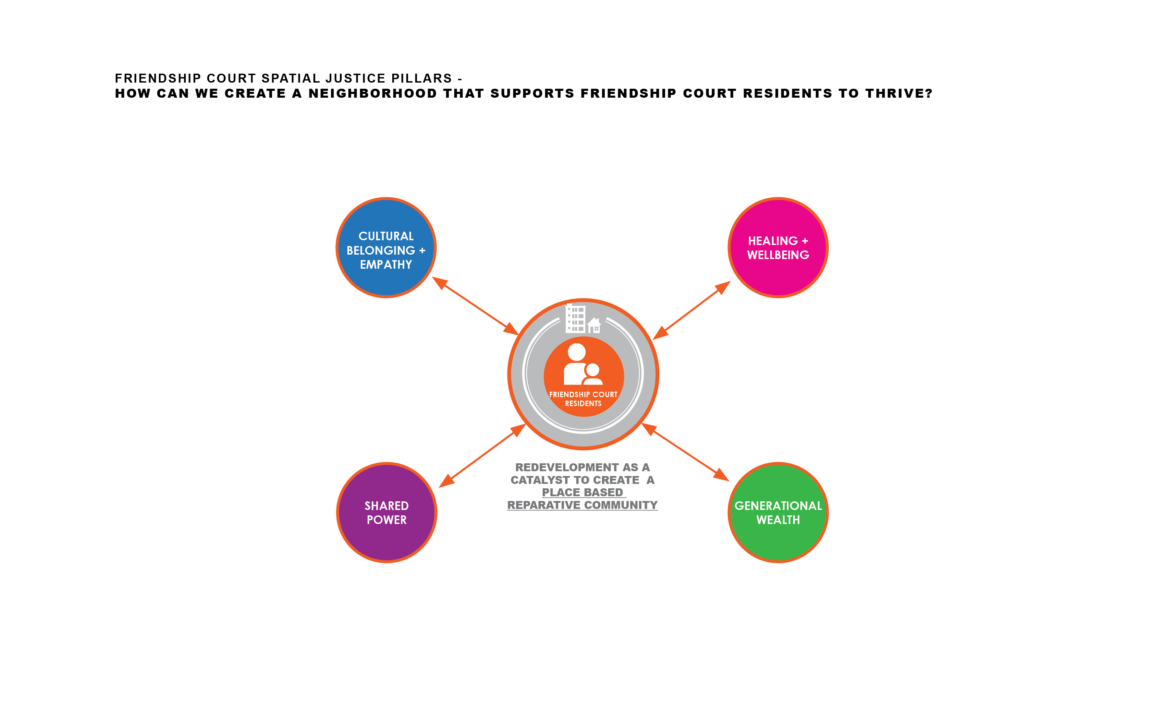
Cultural Belonging + Empathy: Evidence of both honoring the past and of inclusive, empathetic community creation.
View the Cultural Belonging + Empathy diagram
Healing + Wellbeing: Creations of spaces and supports that address past harms and facilitate access to care, joy, and good quality of life.
View the Healing + Wellbeing diagram
Generational Wealth: Establishment of sustainable and enduring access to resources that provide greater freedom of choice and ability to pass on tangible benefits to children.
View the Generational Wealth diagram
Shared Power: Resident access, control, and capacity to make decisions that determine the fate for themselves, their family, and their community.
Place-Based Reparative Model
The structural inertia of conventional housing practices, with success measured by numbers of units, perpetuates complicity in racial and spatial harm, normalizing hidden costs by simply doing more of the same. Without alternatives to “more and better housing,” we’ll just help the poor be poor “better” and maintain poverty as a cruel inheritance. The place-based reparative model centers the collective, lived-intelligence of residents and creates a transformative framework to foster wholeness and self-determination.
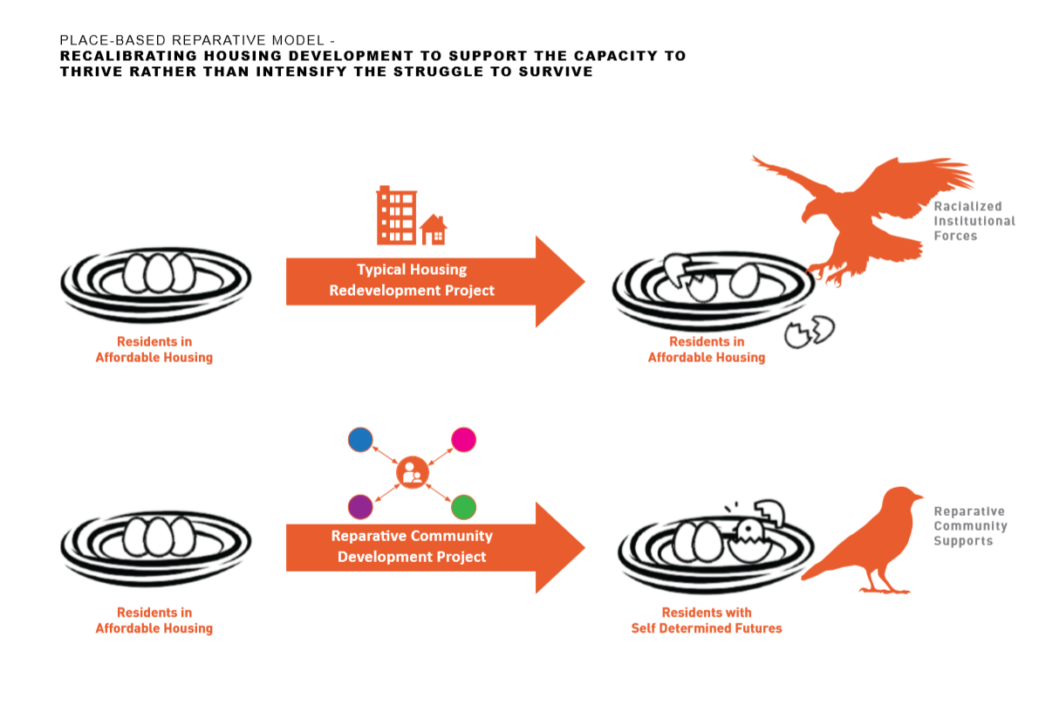
Partnership Ecosystem + Vision
This project is a pathbreaking partnership of place-based residents, an innovative regional nonprofit, and a network of national intermediaries. Fueled by a reparative effort in Charlottesville, we will scale our abolitionist vision to reshape the national affordable housing industry and, in turn, support the ability for millions of families to thrive.
More about Friendship Court
Read news and blog posts about Friendship Court
The Reimagining of Friendship Court


